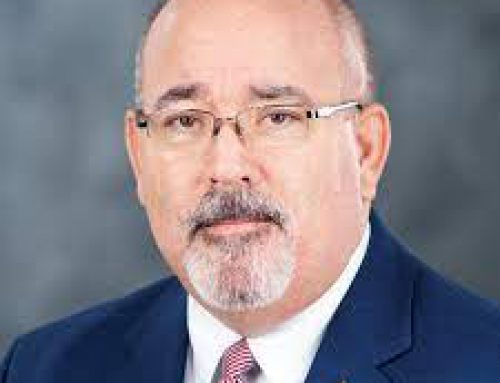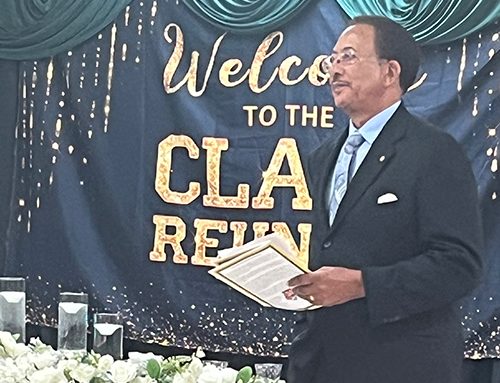Mississippi, Calhoun County braces for what may come of ‘School Choice’ in Legislature
“School choice” is very appealing to the general public and private school officials, while it is troubling to most all public school leaders.
The divisive issue is expected to be at the forefront of debate in the 2026 Mississippi Legislative session and could have far reaching implications for Mississippi public and private schools, families and students.
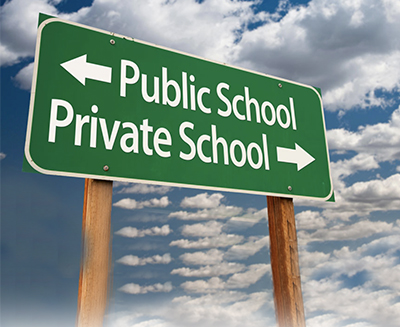 On one side of the issue, public school officials argue that private school tuition vouchers and the availability of district-to-district transfers would create a quick decline in the public school systems across the state due to the loss of both students and critical funding in a state where monies are already tight.
On one side of the issue, public school officials argue that private school tuition vouchers and the availability of district-to-district transfers would create a quick decline in the public school systems across the state due to the loss of both students and critical funding in a state where monies are already tight.
Supporters of school choice argue that families should have the first say in where their children attend school and that it will only create more competition in the educational system to raise the levels for everyone.
The first clarification that needs to be made is it is not certain which form of “school choice” the Legislature will consider and have the best possibility of passing.
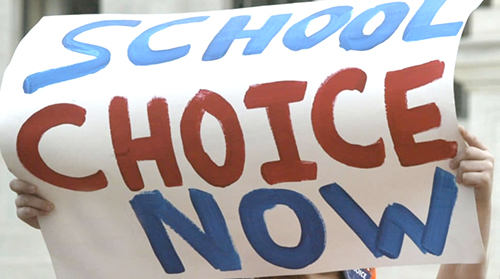 The three most common “school choice” proposals are:
The three most common “school choice” proposals are:
• A tax credit program that is part of the federal “One Big Beautiful Bill Act” signed by President Donald Trump that allows for donations to organizations that provide private school scholarships. States must opt into this program for residents to be eligible. Mississippi House Speaker Jason White is a big advocate for this as a minimum step by the state.
• A new program that would allow for students in D or F-rated school districts (Calhoun County Schools are currently a B) to receive state funding to be used for tuition at an accredited private school.
• An option to allow any public school student to use their state-funded per-pupil budget to transfer to another public school district, provided the receiving district has capacity. It is important to point out this is school district to school district, not to different schools within the same district such as Calhoun City to Vardaman. There are some states that have intra-district transfers as an option, but it is much less common and has not reportedly been part of discussions in Mississippi thus far.
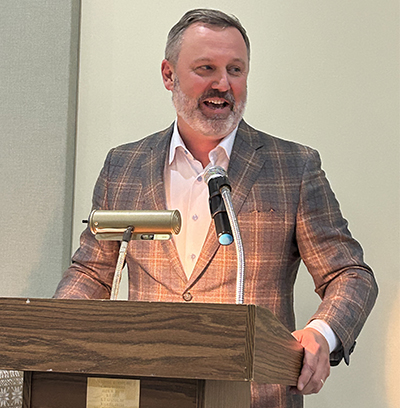
House Speaker Jason White speaking at Calhoun City Chamber Banquet.
However, Jason White was the featured speaker at the Calhoun City Chamber of Commerce Banquet in April when he spoke of the need for “school choice” and left the door open.
“We want to offer students in D and F schools the opportunity to transfer to another school if that school will take them and let state money follow that child, and if there was no public school that would take them they could go to a private school with those state funds following that child to the private school,” he said. Calhoun City High School is currently graded a D by the state. “Every state around us has universal school choice. It’s time for real conversations in that space.”
White announced three new subcommittees in late June, one of which is tasked with coming up with concepts for “educational freedom” legislation before lawmakers convene in January. Those committees began meeting over the summer.
White has voiced his confidence that the House and fellow Republican, Gov. Tate Reeves, will support implementing the voucher program statewide. As for which way the state senate would lean, White said he could not predict that.
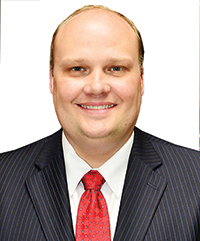
Ben Suber
Calhoun County’s State Senator Ben Suber said he needs more information on what the actual proposal is.
“It is my position that children deserve the best education possible,” Sen. Suber said. “Parents should have the final decision in what is best for their own children. I do not agree that any taxpayer money should be sent to private schools. I want to see the draft of a bill that is being worked on and I believe we have lots of issues that will need to be discussed and work through those issues.”
The Calhoun County School Board has made it clear in their annual survey to be submitted to the Legislature that they do not support “school choice.”
“They aren’t telling us a lot about what form of school choice they are talking about,” School Board Member Colby Bollinger, of Bruce said.
“School choice will not be good for us,” Calhoun County School District Supt. Dr. Lisa Langford said. “I’m talking about district to district. I’m not referencing (transferring) inside the district. That’s not really on the table.”
Dr. Langford spoke about the issue at the latest school board meeting saying there are two types currently being proposed – one transferring from a public system to a private system and the other is the public district to another public district.
“Right now private schools do not have any measurable educational outcomes like we do, so you have two totally different playing fields,” Dr. Langford said. “We still are going to be accountable to the state for all of the academic requirements that we always have. The private schools aren’t making any changes (related to the potential school choice law) so their accountability is very different from ours.”
Dr. Langford expanded on her view of “school choice” away from the meeting.
“As superintendent of a small Mississippi district, I must speak plainly. School choice proposals now being discussed in the Legislature would do real harm to our schools, our students, and our communities.
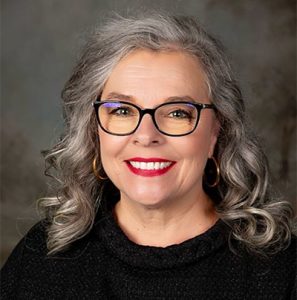
Dr. Lisa Langford
“First, public funds belong in public schools. Our schools are accountable to taxpayers, to parents, and to the state. We serve every child who comes through our doors, regardless of race, disability, or family income. Private schools are not held to the same standards. They choose who they admit, and they are not required to provide the same transparency in academic outcomes or financial reporting. Redirecting public money to schools that do not serve all children is not true parental choice. It is public subsidy of private decisions.
“Second, Mississippi is making historic gains in education. The Annie E. Casey Foundation’s KIDS COUNT Data Book recently ranked Mississippi sixteenth in the nation for education, the highest in our history. Just 10 years ago we ranked near the bottom. Mississippi fourth graders have led the nation in achievement growth since 2013. These results show that our reforms are working. Other states that expanded vouchers, such as Arizona and Ohio, saw drops in student performance and destabilized budgets. We should not put Mississippi’s hard-earned progress at risk.
“Third, the financial consequences would be devastating. If vouchers are extended to families already in private schools, the state could face new costs in the hundreds of millions. For small districts like ours, the loss of state funding would be immediate and severe. We rely heavily on state appropriations and federal Title programs to serve our students. Unlike wealthier districts, we do not have a large local property tax base to offset reductions. When state funds are diverted, we cannot reduce fixed costs such as teacher salaries, transportation, and utilities in proportion to the enrollment loss. That means fewer teachers, larger class sizes, and fewer opportunities for the children who remain.
“Fourth, school choice undermines community trust. Rural schools are often the heart of their communities. Parents and local businesses invest time, energy, and resources to ensure their schools remain strong. If public dollars are sent to private schools that have no local oversight, confidence in the public school system will weaken. That loss of trust will make it harder to improve facilities, retain staff, and maintain the strong link between schools and community vitality.
“Finally, Mississippi already offers parents a variety of educational options. Charter schools, magnet schools, scholarships for students with dyslexia and speech challenges, and a military family choice bill are already law. Parents in our state are not without options. What is being proposed now is not about expanding opportunity. It is about draining resources from the system that educates the vast majority of Mississippi’s children.
“Our responsibility is to protect the future of public education in this state. For small districts like ours, school choice would mean fewer teachers, fewer resources, and less stability. The winners would not be Mississippi’s children. The winners would be private schools that answer to no one while using taxpayer funds.
“We should continue building on our proven progress, not dismantling it,” Dr. Langford concluded.
School Board Attorney Paul Moore Jr. affirmed his position at the last school board meeting saying if state funds currently appropriated to the school district are diverted to private schools by the Legislature then he is adamantly “against it.”
“I only see (school choice) being a negative for our district because you’re going to have people who have the means take their kids to a bigger district. They’re going to be the ones that pull out and go,” Dr. Langford told the school board. “Then you’re going to leave the children behind that don’t have the means to get to another district.”
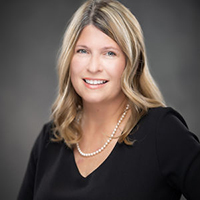
Christie Vance
Dr. Langford said in multiple meetings with school superintendents around the state that legislators are not listening to school officials.
“It’s going to take some grassroots effort from the teachers or from parents, or from boards. I have a resolution I encourage us to sign and send saying, ‘We don’t stand for this,’ because like I said, they are not listening to us anymore. We’ve been told that ship has sailed.”
Christie Vance, of Calhoun City, who represents district four on the Calhoun County School Board, reaffirmed Dr. Langford’s sentiments that the legislators are not discussing these issues with educators.
“They are having these meetings at the Capitol and the first meeting they had they had no public school representatives speak at all,” Vance said. “It was all people from the outside coming in and speaking regarding school choice, the vouchers is really what they’re looking at.”
Vance, in a separate submission, further explained her opposition to “school choice.”
“Mississippi stands at a critical juncture when it comes to the future of our education system. The growing push for school choice has sparked debate across our state. While the concept may sound empowering on the surface, I believe it carries the real risk of deepening the divides we already see among our children.
“As someone who serves on a local school board, I witness both the potential and the struggles within our public schools every day. There are hardworking educators, dedicated families, and bright students in every classroom. But there are also real disparities; disparities rooted in race, income, and access. School choice, as currently proposed, threatens to widen those gaps even further.
“In Mississippi, this policy could easily result in resegregation along racial and socio-economic lines, reversing years of hard work and progress toward equity. Families with means would have the ability to choose and transport their children to private schools, while those with fewer resources, often in rural or lower-income communities, would be left behind in underfunded systems.
“Even more concerning, public funds would be redirected to private institutions that are not required to follow the same accountability standards, provide transportation, or ensure open access to all students. The choice will not be driven by parents but by the private school’s selection standards. When taxpayer dollars are funneled to schools that can select whom they choose to serve, we are not creating choice, we are creating exclusion. Public education is one of the cornerstones of American democracy. It represents a shared belief that every child, regardless of race, background, or income, deserves a fair shot at success. Our public schools are more than classrooms; they are community anchors and the foundation of possibility for countless families. Through collective funding for our education system, we provide greater opportunities for all than could be achieved independently.
“Instead of diverting resources away from these vital institutions, Mississippi should focus on strengthening them. That means investing in teachers, improving infrastructure, expanding access to early education, and ensuring equitable funding across districts. Real reform should uplift all students, not a privileged few.
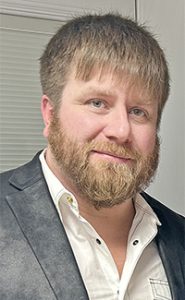
Colby Bollinger
“We must have the courage to look beyond appealing slogans and make decisions grounded in fairness and responsibility. Mississippi’s children deserve a system that values each of them equally. School choice may promise opportunity but in reality, it offers that promise to only a few, while for far too many, it would deliver only division.”
Bollinger, during an interview in his office on South Newberger in Bruce, expressed many concerns about school choice including the potential of more segregation within the school district. He pointed to the demographics that show Bruce is by far a majority white school, Calhoun City is majority black, and Vardaman is the majority Hispanic school.
“We are as split as I have ever seen” Bollinger said. “I don’t know what this would do to us as far as making that worse.”
“I understand why some people want school choice, but as Lafayette County and Oxford have said, they aren’t going to take any of our kids. I need to see more information on how this would work,” Bollinger said.
“I look at Calhoun Academy and they are already getting services from us that they don’t pay for,” Bollinger said. “If they start getting state funding, I think they should have to follow the state curriculum. There are a lot of details on this that must be worked out.”
Lucas Ferguson was an administrator with Oxford Schools. This year he took over leadership at Vardaman Attendance Center.
“There are individual families out there that probably can see the benefit of being able to choose where their kids go to school. I can understand that piece of it,” Ferguson said. “But in my capacity, I have to look at it from an institutional standpoint, and the last thing we need is for the chasm between the haves and the have nots to be exasperated. The people that have the means to make those choices versus the ones that don’t.”
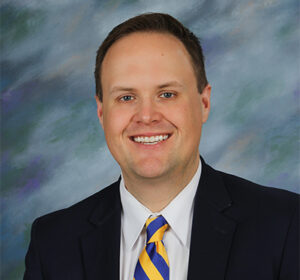
Lucas Ferguson
“So not just advocating for those people who may not be able to capitalize on a situation like that, but the school system itself was not built to handle that kind of à la carte disposition toward a child’s education,” Ferguson said. “We already have teacher shortages. We know there’s funding issues. We make the best of what we can. But a lot of the things we’re able to do is because the way our funding is established through people who pay taxes in certain areas and through people who contribute to the local economy because our zones are set up that way. To blur those lines, will have financial impacts at some point that we can’t afford to absorb.”
Vardaman Attendance Center has 25 students this year that live in Chickasaw County that pay tuition to come to school in Vardaman.
“It’s even still hard for us to take in those kids. Imagine if it was a free for all. We would immediately have to have a cap here,” Ferguson said. “Right now with our cafeteria we’re barely able to provide for the size we are right now.”
Calhoun County’s only private school, Calhoun Academy, currently has approximately 180 students. Head of School Stephanie Hardin said their patrons support the “tax credit scholarship” proposal but the bigger school choice issue is not as clear.
Hardin pointed out their maximum capacity given their current facilities would be 240 students and they would be “busting at the seams.” Their ideal numbers for the best educational atmosphere is around 80% capacity which would be in the 190s.
“We are getting to a point where we are going to be healthy with what we have now. I want growth. I would love to be at 200. That is where I would love to be, but we have some classes right now that are overran. We have 17 in a class. They’re maxed. We could fit more, but the last thing I want us to do is lose sight of who we are,” Hardin said. “When people come here from a big school or even a public school of a 2A size, they just can’t talk enough about the family atmosphere. They get that because your child is in a class of 15. You have a group chat with your families in that class. We work together fundraising and people hate it most of the time, they get tired of it, but at the end of the day, you’re working together. When you’re sitting there selling tea at that football game, you’re talking about life with these people. So you just form relationships and I don’t ever want to lose that.”
Hardin suggested she doesn’t foresee a big rush of students coming to Calhoun Academy if some form of school choice was adopted, but if that was the case they would have to put a cap on how many they could accept because they don’t want to sacrifice their priorities.
“Regardless of size, our prioritizing Christ, that’s not going to go away, but there are so many other reasons why people are here. And people have talked to me about that, and that is a fear that our families have,” Hardin said. “They don’t want this place to blow up huge. That’s not what Calhoun Academy is.”
Hardin said their concerns about what the Legislature is considering now in regards to school choice is its long term sustainability and the school is not going to make any rushed decisions on expansion and risk their long term future.
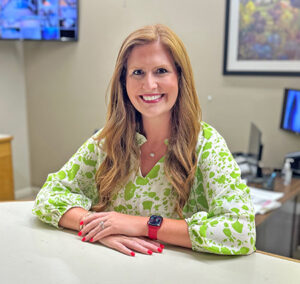
Stephanie Hardin
“Can we trust the Legislature that this school choice is going to stay put? Or is our next Legislature going to totally do away with this?” Hardin said. “Sustainability is our concern. The tax credit scholarship appears set in stone. I’m not talking about school choice. I’m talking about the tax credit that is pretty much going to be set in stone. Do I think that’s going to inflate our numbers? No, but will it help our people? It absolutely can help our school and our families to get that tax credit.”
Two Trump administration officials recently testified before one of the committee meetings in Jackson praising the state’s rise in national education rankings. Dr. Laurie Todd-Smith, a Deputy Assistant Secretary for Early Childhood Development at the Administration for Children and Families in the U.S. Dept. of Health and Human Services, said, “I think Mississippi could really learn from how other states have implemented it. You have an opportunity to expand. The research shows that public schools actually get better as a result of having more school choice options.”
Dr. Lindsey Burke, Deputy Chief of Staff for Policy and Programs at the U.S. Dept. of Education, told the committee that school choice, be it vouchers or education savings accounts, allow parents and students to find the right schools for their needs.
One question on some lawmakers’ minds was the constitutionality of school choice. Those opposed contend that public funds should not go to private or religious schools. Burke explained that fear was unwarranted. She said the U.S. Supreme Court has ruled it is “perfectly reasonable” for public monies to end up with religious schools, as the funds go to the family who then send it to the school of their choosing.
Dr. Phil Burchfield, Executive Director of the Mississippi Association of School Superintendents, disagreed in an editorial submitted this week to The Journal.
“Nearly 90% of Mississippi’s children attend public schools. These are the neighborhood schools that educate our future doctors, welders, farmers, and entrepreneurs—the schools that form the backbone of our communities. Yet instead of investing in those schools, some lawmakers are proposing to shift public dollars into private school subsidies and voucher programs. What’s being presented as a new ‘choice’ for families is a loss — especially for those who rely most on public education. Vouchers are not a lifeline. They are a siphon — draining resources from schools that serve many students while funneling tax dollars to private institutions that are not required to serve every child.”
Committee hearings are ongoing in the Mississippi Legislature. What version of “school choice” may pass, if any, remains unknown at this point.
Editor’s Note: Contributors to this story included Mississippi Today and Magnolia Tribune.



